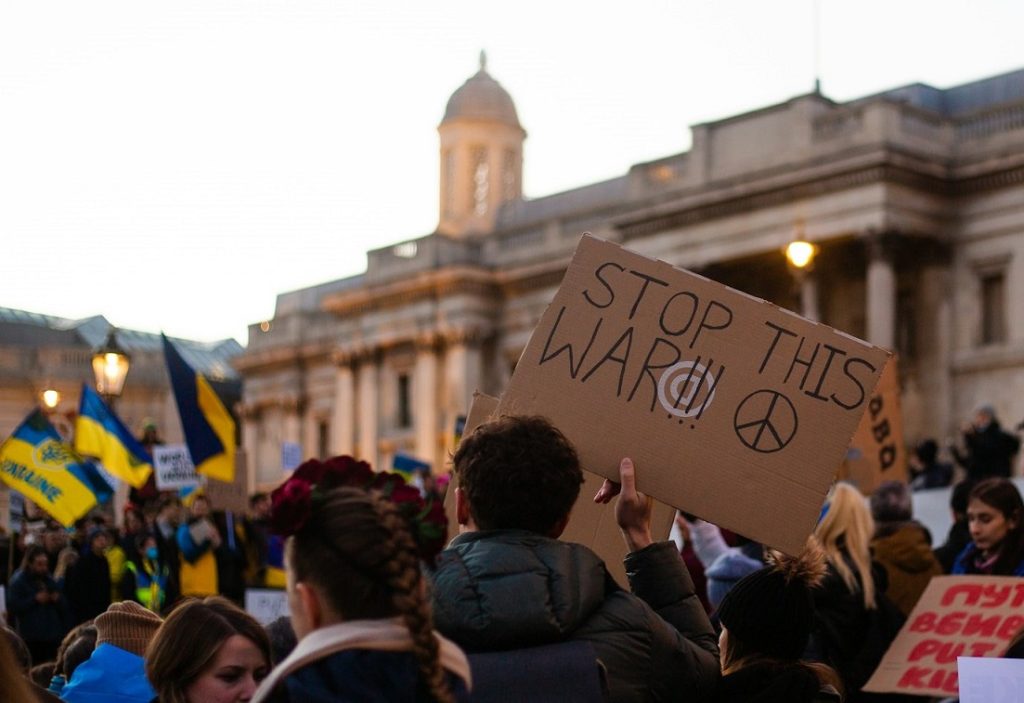The Russia-Ukraine war has become one of the most complex and destructive conflicts of our time. What started as a political crisis in 2014 with the annexation of Crimea has now escalated into a full-scale war with global consequences.
More than 160,000 lives have been lost, and 14 million displaced, according to the United Nations High Commissioner for Refugees (UNHCR). The conflict has disrupted global food security, energy markets, and international law. But unlike many wars in history, this conflict cannot be solved through military strength alone. It is best understood as a paradigmatic wicked problem – an issue that resists resolution due to complex historical grievances, shifting identities, and conflicting stakeholder goals.
The roots of the conflict go back to the collapse of the Soviet Union in 1991. Ukraine gained independence, but Russia continued to see the country as part of its strategic and cultural sphere. Nato declared that Ukraine could one day become a member in 2008, triggering alarm in Moscow. Russia viewed Nato expansion as a direct threat to its security. Following mass protests in Ukraine that led to a pro-Western government in 2014, Russia seized Crimea and backed separatist forces in the Donbas region. It used “hybrid warfare” tactics – propaganda, cyberattacks, and proxy fighters – to destabilise Ukraine. The full invasion in 2022 brought these tensions to a head.
Russia claimed it was defending ethnic Russians and historical ties, while Ukraine saw it as an attack on its sovereignty and identity. For Moscow, Ukraine drifting toward the European Union and Nato was unacceptable. For Kyiv, the war became a struggle for freedom, independence, and democratic values.
This conflict is not only about territory or power – it is fundamentally a war of identity and legitimacy. Constructivism emphasises that identity, perception, and narratives shape how actors behave, making it relevant for conflicts where history and legitimacy are contested. Russia sees Ukraine’s Western turn as a betrayal, while Ukraine sees compromise as giving up its independence. Because of this, traditional diplomacy has failed to bring results. Talks held in Turkiye and through the UN have not produced peace.
The war’s impact goes far beyond Ukraine’s borders. It has disrupted energy supplies, pushed food prices higher, and contributed to global inflation. Countries in Africa and the Middle East have struggled due to blocked grain exports, while Europe has had to urgently reduce its dependence on Russian gas. At the same time, Russia’s economy has been hit hard by sanctions, losing more than US$600 billion in assets, although support from China, India, and other neutral countries has helped it survive.
Domestic politics play a major role within both countries. In Russia, the war has been used to unite the population around patriotic narratives. High defence spending and state propaganda have boosted national pride and employment, making the war popular in some circles.
In Ukraine, the war has strengthened the public’s desire to resist and align with the West. But both nations are under pressure. Russia is feeling the effects of sanctions and isolation, while Ukraine suffers from fatigue, displacement, and destruction. These domestic pressures intersect with wider international dynamics, shaping both obstacles and opportunities for peace.
To move toward peace, the world must treat this as more than a military or political dispute. From a policy-oriented perspective, an immediate step should focus on humanitarian relief, localised ceasefires, and the creation of safe zones to protect civilians and facilitate aid delivery as the short-term action (United Nations, 2023).
Regional security frameworks for Eastern Europe, however, should be strengthened as a medium-term strategy, including information-sharing, confidence-building measures, and mechanisms to prevent escalation. Durable peace will require institutional reform, reconciliation efforts, and inclusive governance. Constructivist approaches suggest that symbolic healing, truth-telling, and mutual recognition are necessary for rebuilding trust. Stronger international institutions, including a revitalised UN and the Organisation for Security and Co-operation in Europe (OSCE), must play central roles.
The Russia-Ukraine war remains one of the most destructive conflicts of the 21st century, exemplifying the characteristics of a wicked problem. Its roots in identity and history make compromise elusive, and without multipolar cooperation, reconciliation, and inclusive security arrangements, it risks becoming a protracted source of instability.
Lasting peace will require addressing deeper grievances, rebuilding trust, and establishing frameworks that respect the sovereignty and identities of both nations. Failure to do so may normalise unresolved conflict in the international system, undermining global norms of sovereignty, non-aggression, and human rights.
As former secretary-general of the United Nations, Ban Ki-moon reminded the world, “In a fragmented world, peace is no longer the responsibility of a few powerful states, it is a shared burden of humanity.”
Colonel Noor Azman Yahya is a member of the Malaysian Army and is attending the National Resilience College, PUSPAHANAS in Putrajaya.
The views expressed here are the personal opinion of the writer and do not necessarily represent that of Twentytwo13.












